SUMMARY
This is AI generated summarization, which may have errors. For context, always refer to the full article.
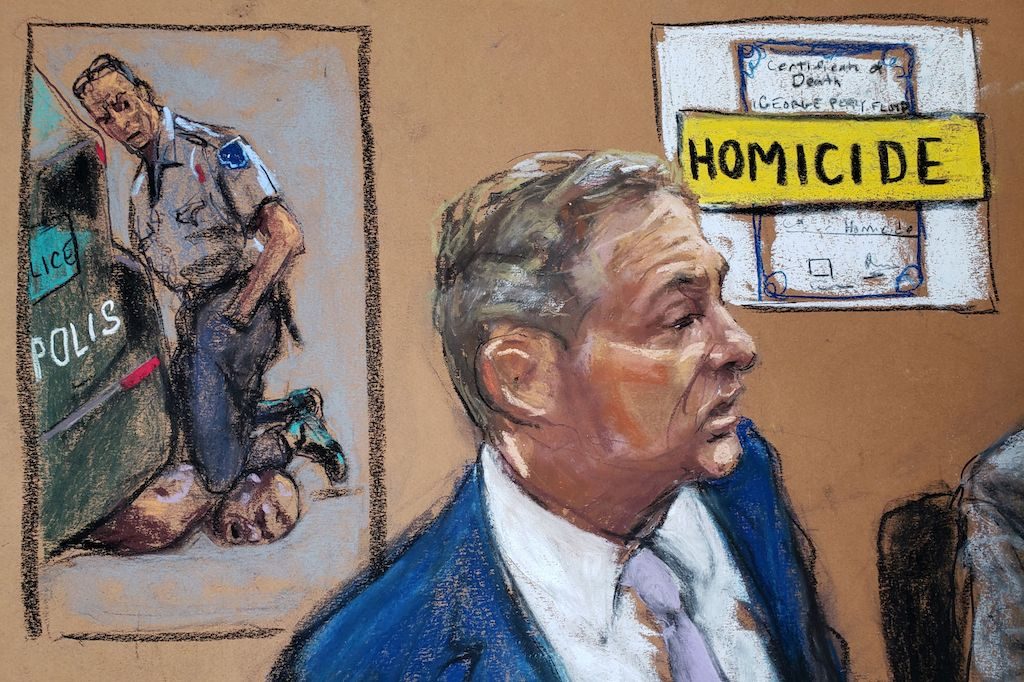
Jurors in the murder trial of Derek Chauvin began deliberations on Monday, April 19, after a prosecutor implored them to “believe your eyes” as he replayed video of the former Minneapolis policeman kneeling on a dying George Floyd’s neck.
Chauvin’s lead lawyer, Eric Nelson, countered in his own closing argument that Chauvin behaved as any “reasonable police officer” would, saying that he followed his training from 19 years on the force.
Over and over again, Steve Schleicher, a prosecutor with the Minnesota attorney general’s office, repeated a phrase: “Nine minutes and 29 seconds” — the length of time Chauvin was captured on video on May 25, 2020, with his knee on Floyd’s neck.
Although the jury’s verdict will be seen as a reckoning of the way the United States polices Black people, Schleicher emphasized in remarks that lasted nearly two hours that the jury was weighing the guilt of only one man, not a system.
“This wasn’t policing; this was murder,” Schleicher told jurors. He cited the motto of the Minneapolis Police Department, which fired Chauvin and three other officers after Floyd’s arrest: “To protect with courage and to serve with compassion.”
“Facing George Floyd that day that did not require one ounce of courage, and none was shown on that day,” Schleicher said, often speaking with audible anger and disgust. “All that was required was a little compassion and none was shown on that day.”
Chauvin, who is white, knelt on Floyd, a 46-year-old handcuffed Black man, outside the grocery store where Floyd had been accused of buying cigarettes with a fake $20 bill. Bystanders filmed and screamed at Chauvin to get off and check Floyd’s pulse.
“He was trapped with the unyielding pavement beneath him, as unyielding as the men who held him down,” Schleicher said, playing a clip of video he said showed Chauvin mocking Floyd’s struggle to breathe.
Hennepin County District Judge Peter Cahill gave the jury final instructions before they left the courtroom at 4 pm (2100 GMT) to begin their deliberations. Jurors will be sequestered in a hotel outside of deliberation hours.
Unattractive force
Chauvin has pleaded not guilty to second-degree unintentional murder, third-degree “depraved mind” murder and second-degree manslaughter.
Nelson, his lawyer, said prosecutors were wrong to dismiss his theory that carbon monoxide poisoning from the nearby police car’s exhaust and Floyd’s use of the opioid fentanyl may have contributed to Floyd’s death.
He repeated a single phrase scores of times, saying Chauvin behaved as a “reasonable police officer” would with a man as “large” as Floyd, who was struggling against being put in a police car when Chauvin arrived, responding to a call for back-up.
Chauvin, dressed in a gray suit and blue shirt and tie, removed his face mask, part of the coronavirus pandemic’s social-distancing requirements, and watched jurors listen to his lawyer, who spoke for nearly three hours.
In a final rebuttal, Jerry Blackwell, another prosecutor, scoffed at the carbon monoxide theory.
“What ‘reasonable police officer,’ when apprehending someone on the ground, subdues them and puts their face in front of a tailpipe of a car, and then thinks that’s a defense?” he asked.
The extensive video of Floyd’s death from multiple angles is the heart of the prosecution’s case, replayed for hours on end to the jurors.
“You can believe your eyes,” Blackwell said, echoing Schleicher’s phrasing. “It was what you saw. It was homicide.”
He said the video shows Chauvin using unreasonable, and therefore illegal, force in compressing Floyd’s torso against the road, starving him of oxygen.
He said it was something that was obvious even to the youngest bystander who testified. “Even a 9-year-old little girl knows it: Get off of him,” Blackwell said.
But Nelson used the same videos to try to prove the opposite point. The fact that Chauvin continued kneeling on Floyd even as he knew he was being filmed was evidence he believed he was responding to the scene in a reasonable way, Nelson said.
“In this case, the totality of the circumstances that were known to a reasonable police officer in the precise moment the force was used demonstrates that this was an authorized use of force, as unattractive as it may be,” Nelson said.
National news networks carried live broadcasts of testimony after the first of 45 witnesses took the stand three weeks ago, though the coverage was sometimes interrupted by fresh episodes of police violence caught on camera.
The closest instance occurred a few miles from the courthouse in downtown Minneapolis when a white police officer fatally shot a Black motorist, Daunte Wright, on April 11 in a traffic stop in the nearby suburb of Brooklyn Center.
As angry protests swelled, Minneapolis and state officials have ramped up security precautions. The tower in which the courtroom sits is ringed by barbed wire and armed soldiers from the National Guard.
For the second-degree murder charge, 12 jurors will have to agree that prosecutors proved beyond a reasonable doubt that Chauvin committed a felony, in this case assault, that was a substantial cause in Floyd’s death. They do not have to find that Chauvin intended to kill Floyd.
That crime carries a punishment of up to 40 years in prison, although sentencing guidelines call for a shorter sentence of up to 15 years for someone with no prior convictions. – Rappler.com
Add a comment
How does this make you feel?
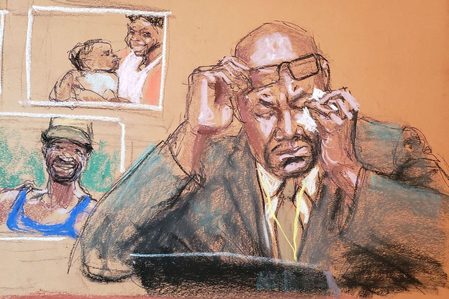
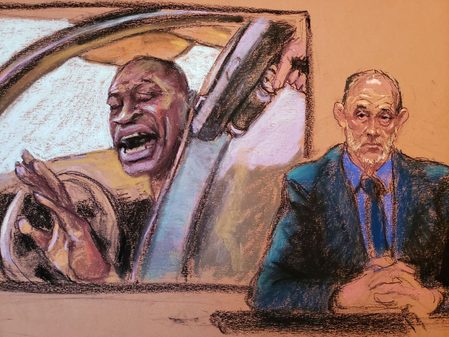
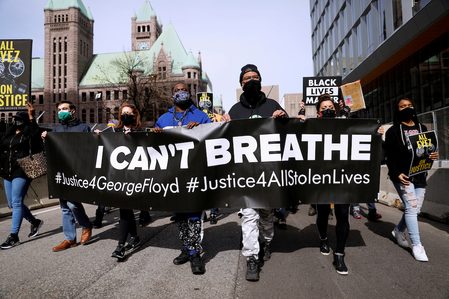
![[EDITORIAL] Hustisya sa Jemboy case: Tinimbang ka ngunit kulang](https://www.rappler.com/tachyon/2024/03/animated-jemboy-baltazar-killing-verdict-carousel.jpg?resize=257%2C257&crop=257px%2C0px%2C720px%2C720px)

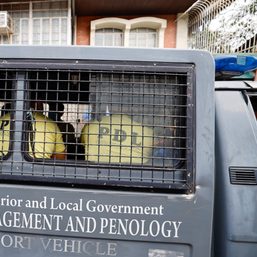
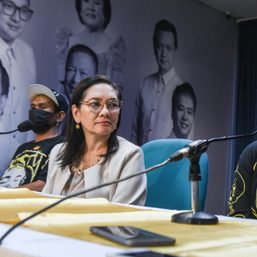
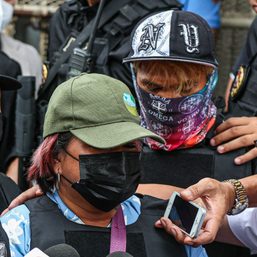


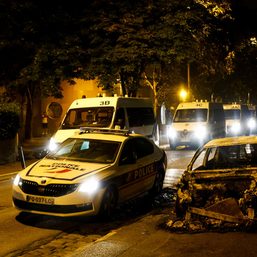
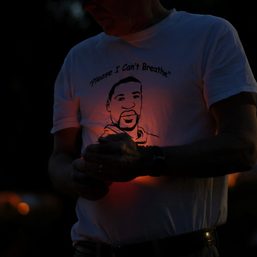
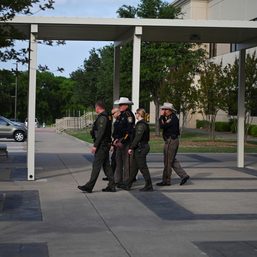
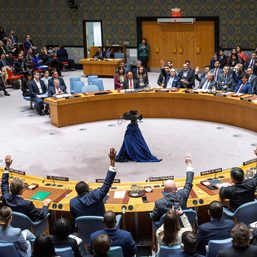


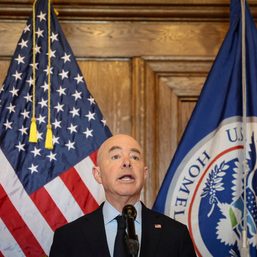
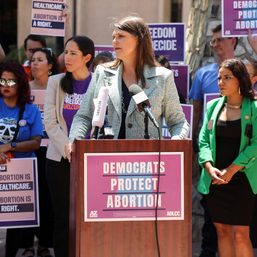
There are no comments yet. Add your comment to start the conversation.